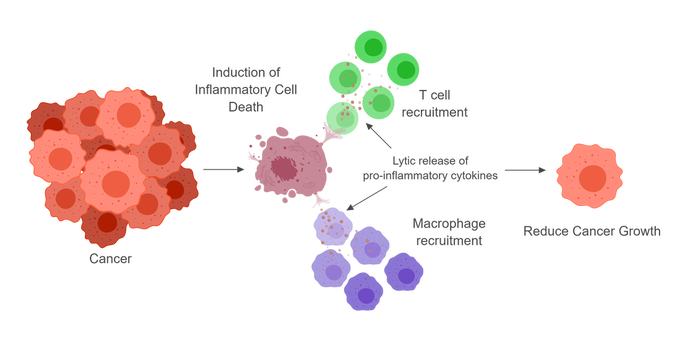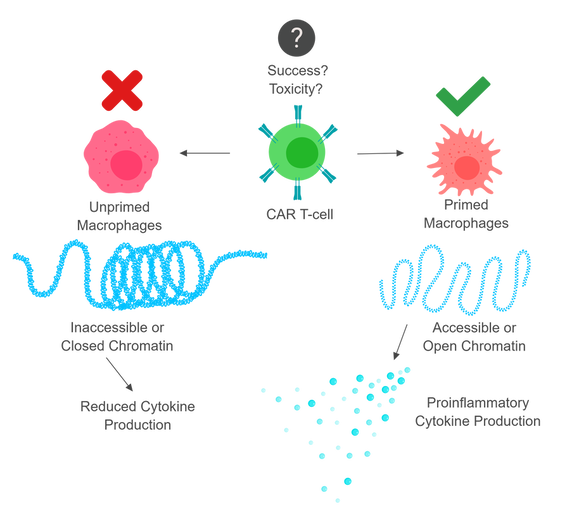Research
We seek to understand how macrophage phenotypes impact and drive pediatric cancer. We use this knowledge to develop novel technology that target/alter macrophage phenotypes to improve pediatric cancer outcomes.
Inflammatory cell death is a mechanism through which pathogens are identified and eliminated. Unsurprisingly, the machinery responsible for this form of cell death is upregulated in MФs. These forms of cell death are implicated in cancer (under-active death) and autoimmune disorders (over-active death). We seek to understand how signaling mechanisms from these forms of cell death impact pediatric disease progression and how to harness or reverse them to improve outcomes.
Through a clinical collaboration with The Pinto and Gardner Labs at Seattle Children’s Research Institute, we are exploring how specific epigenetic markers in primary pediatric patient monocytes can predict MФ functional behavior. We believe these epigenetic marks can train MФ functional response and drive disease progression. If true, these epigenetic maps that were are creating can outline and predict both cancer and therapeutic success. We hope to harness this understanding to develop both clinical biomarker assays and novel tools.



